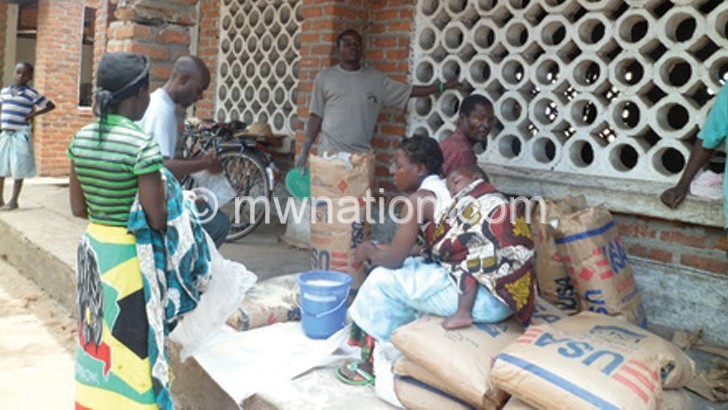UN food agencies call for quick response to food crisis in Sadc
A record 45 million people across the 16-nation Southern African Development Community (Sadc) will be severely food insecure in the next six months, United Nations food agencies have warned.

The Food and Agriculture Organisation (FAO), the International Fund for Agricultural Development (IFAD) and the World Food Programme (WFP) are calling for urgent funding to avert a major hunger crisis and for the international community to step up investment in long-term measures to combat the impact of climate shocks and build the capacity of communities and countries to withstand them.
In a statement released on Thursday, the three UN agancies said there are more than 11 million people now experiencing “crisis” or “emergency” levels of food insecurity in nine Southern African countries: Angola, Zimbabwe, Mozambique, Zambia, Madagascar, Malawi, Namibia, Eswatini and Lesotho.
“We’ve had the worst drought in 35 years in central and western areas during the growing season,” said Margaret Malu, WFP’s acting Regional Director for Southern Africa in the release.
“We must meet the pressing emergency food and nutrition needs of millions of people, but also invest in building the resilience of those threatened by ever more frequent and severe droughts, floods and storms,” she added.
UN said while southern Africa has experienced normal rainfall in just one of the last five growing seasons, persistent drought, back-to-back cyclones and flooding have wreaked havoc on harvests in a region overly dependent on rain-fed, smallholder agriculture.
“The growing hunger crisis, affecting urban as well as rural communities, is being aggravated by rising food prices, large-scale livestock losses and mounting joblessness. It is also worsening levels of acute malnutrition in particularly at-risk communities,” reads the statement in part.
In addition to addressing urgent food and nutrition needs, the UN food agencies want help for smallholder farmers to boost production and reduce losses, manage soil and water resources in a sustainable way.
“Late rains, extended dry periods, two major cyclones and economic challenges have proved a recipe for disaster for food security and livelihoods across Southern Africa,” said Alain Onibon, FAO’s Sub-Regional Coordinator for Southern Africa.
As such, he said, it could take many farming communities at least two to three growing seasons to return to normal production; hence, immediate support is vital.
“Now is the time to scale up agricultural emergency response. We need to ensure farmers and agropastoralists take advantage of the forecasted good rains, assuming they happen, as this will be crucial in helping them rebuild their livelihoods,” said Onibon.
Apart from the drough, Southern Africa is also expected to be hit by a heat wave.
Temperatures rising at twice the global average, according to the International Panel on Climate Change, will be experienced in six to nine African countries including Democratic Republic of Congo, Malawi, Mozambique, Tanzania, Zambia and Zimbabwe.





